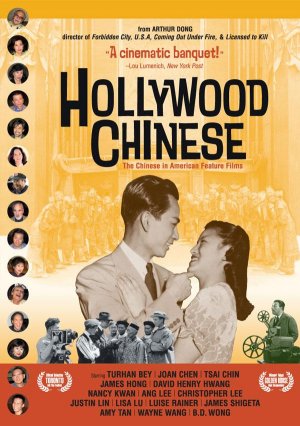Nearly a decade before #OscarSoWhite made racism in Hollywood a national topic, award–winning filmmaker and historian Arthur Dong explored how Chinese and Chinese Americans had been represented on screen. Additionally, he honored the contributions of Chinese Americans—actors, directors, writers, and other artists—to the development of American cinema, from Marion Wong’s The Curse of Quon Gwon (1916) to Ang Lee’s Brokeback Mountain (2005), through a 90-minute feature award-winning documentary, Hollywood Chinese (2007).
Drawing on Dong’s love of movies and moviemaking, his extensive personal collection of film memorabilia, along with his own experience of growing up watching “real Chinese films,” the documentary reflects a his lifelong interest in Chinese and American cinema and a deep awareness of the ways in which Hollywood created and perpetuated racial stereotyping, on camera as well as behind the scenes. “At its core, the film is about race relations in America,” the Academy-Award nominated filmmaker insists. Using a combination of clips and interviews from classic and contemporary films, and by framing the documentary around the personal stories of those involved in making them, the documentary challenges viewers to question the validity of the stereotypic images that were presented on-screen: “It’s not so much that I was offended [by these portrayals],” Dong explains. “It was a matter of inquiry. Like, how did they get this image?” At the same time, the film documents the positive changes that have resulted as more Chinese Americans have gained the power to tell the stories and portray the characters that reflect the reality of their own experiences.
The film, which aired nationally on PBS’ American Masters series in 2009, also enjoyed wide theatrical distribution in the US and has become a favorite of film history aficionados. Now a part of Hollywood history in its own right, the award-winning documentary is regularly shown in classrooms throughout the country, and the film’s archive of images and memorabilia has provided material for a companion exhibit. Recently, it debuted in China as part of a new series focused on Chinese American films. When asked about how the film continues to resonate 10 years after its debut, Dong says that one need look no further than the controversy over anti-Asian jokes at the Oscars in 2016 to see its continuing relevance.


